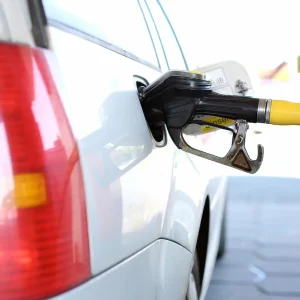UK new car registrations rose by 1% year-on-year in April, with fleet demand still proving the key to market strength.
According to the Society of Motor Manufacturers and Traders (SMMT), April was the 21st month in a row to see overall growth, thanks to an 18.5% rise in fleet registrations, which accounted for more than six out of ten new cars registered.
In contrast, private registrations were down by 17.7%, and business registrations – classed as those to firms with fewer than 25 vehicles – were down by 16.1%.
Despite the slight growth, the overall market was still down by 16.6% compared with pre-pandemic levels, although it was the best April for sales since 2021.
In terms of fuel mix, there was a 10.7% increase in EV registrations, with these accounting for 16.9% of the market, up from 15.4% last April.
Plug-in hybrid registrations were up by 22.1%, taking a 7.8% market share, while hybrid registrations rose by 16.7%, taking 13.1% of the market.
Petrol car registrations fell by 3.1%, taking 55.8% of the market, while diesels were down by 25.3% for a 6.4% market share.
The SMMT has updated its whole-year sales forecast for the market, with a 0.5% increase on that issued in January, to 1.984 million new car registrations in 2024.
However, its forecast for EV sales has come down by 5.2%, with the SMMT continuing to raise concerns about a lack of incentives for private EV buyers.
SMMT chief executive Mike Hawes said: “The new car market continues to grow even in the quieter months, driven primarily by fleet demand. This is particularly true of the electric vehicle sector, where the absence of government incentives for private buyers is having a marked effect.
“Although attractive deals on EVs are in place, manufacturers cannot fund the mass market transition single-handedly.
“Temporarily cutting VAT, treating EVs as fiscally mainstream not luxury vehicles, and taking steps to instil consumer confidence in the chargepoint network will drive the market growth on which Britain’s net zero ambition depends.”
Reacting to the figures, Lex Autolease managing director Nick Williams said: “Despite the economic environment, it’s encouraging to see EV sales continue to move in the right direction. That said, the overall production landscape looks set to be challenging this year and there is a requirement for everyone involved in the electric vehicle transition to help sustain consumer confidence.
“From affordability to charging, we know that people have concerns, so it’s no surprise to hear some question the industry’s ability to meet its zero emission vehicle targets.
“What’s needed now is certainty from government, especially about the essential incentives needed to encourage drivers to make the switch. Prioritising the rapid and fair roll out of charging infrastructure is vital too, as well as a clear communication strategy to provide authoritative, clear and trustworthy information on EVs.
“We recognise that the transition to a more sustainable future of transport to benefit us all is not easy.”
KPMG UK head of automotive Richard Peberdy said: “While April registrations often fall back after a busy new plate month in March, new car registrations are holding steady this year, with fleet buying particularly driving the sales in the new car market.
“While some consumer car purchases are covered under fleet data in the shape of salary sacrifice leasing, consumer new car sales are continuing to be impacted by pressure on household budgets, and a higher cost of finance and insurance. New car sellers are discounting to try and create more consumer growth, whilst also pushing new models coming to market.
“The UK car industry is hoping that interest rate falls in the second half of the year may bring about improved consumer confidence in the short to medium term picture for the UK economy. The implications of the zero emission mandate will also be an increasing concern as the year goes on, should electric vehicle market share not increase.”
The Ford Puma was the UK’s top-selling car in April, with 4,339 registrations, ahead of the Volkswagen Polo (3,413 registrations) and the Audi A3 (3,010).





